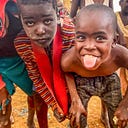Sowing seeds of gender equality in Somalia
By Maha Abusamra
What comes to your mind when you think of gender equality in Somalia? Many development experts might point out its traditionally patriarchal society, the alarmingly high rates of Female Genital Mutilation (FGM), and the significant challenges posed by ongoing conflicts and political instability. These issues contribute to Somalia’s low rankings on various global indices, including the Human Development Index (HDI), the Global Gender Gap Index, the Corruption Perceptions Index (CPI), the Fragile States Index (FSI), and the World Press Freedom Index. However, upon closer observation, I’ve encountered a different narrative on the ground — one marked by remarkable energy and enthusiasm among women and men of all ages.
When I first landed in Mogadishu in 2020 to join UNDP as a gender advisor, I saw the people’s appetite for change firsthand. I had modest expectations, as I started working on embedding the principles of gender equality into our core objectives — to help already active champions bring change within Somalia.
Making poetry advocate gender equality
Upon arrival in Mogadishu, I was confronted with the challenge to first understand the nation’s triple crisis: droughts and floods, conflict and the pandemic. But navigating through a web of social norms, power dynamics, religious influences, and clan systems, I met amazing Somali champions who saw a clear path to equality. During this journey, I met a group of inspiring young men and women led by Zahra Abdihagi Mahamed, a Canadian-Somali poet, and the founder of “Somalia Storyteller.” Zahra and her team are passionate about using poetry and digital storytelling to change global perceptions of Somalia, showcasing the nation one story at a time. From Zhara, I learned much and saw the hidden facets of Somalia — through her lens of photos, videos, stories, poems, and live streams, revealing a Somalia unknown to many.
The Gender Equality Seal Initiative 2021- 2024
At UNDP Somalia, our commitment to gender equality is evidenced through the Gender Equality Seal initiative from 2022 to 2024, and it is guided by Gender Equality Strategy 2023–2026. By adopting a strategy rooted in Positive Deviance and the 10-Points Action Agenda (10PAA) approaches, we have managed to spotlight best practices and identify significant growth opportunities within our Country Office. This strategic approach, coupled with a strong focus on women’s empowerment and active engagement of men, helped us achieve some concrete results. This initiative has spurred me to search deeper, to see the unseen, and to bring those hidden aspects into the light.
The Gender Mainstreaming Tree
This narrative shift in our gender equality seal journey emphasizes not only the strategies we’ve adopted but also the lives we aim to transform, marking a pivotal chapter in our mission to weave gender equality into the very fabric of our operations.
Trust, listening, and flexibility became our guiding principles, underpinning our belief that sustainable change must emerge organically from within. Our CO self-assessment acted as a comprehensive health check, as I keep saying it is like a doctor, leading to an action plan that we developed collaboratively with the Gender Task Team (GTT). Starting from the roots of our gender mainstreaming tree, we ensured synergy across our initiatives, paving the way for programs and projects imbued with strong gender considerations to make visible impacts.
The Journey’s Milestones and Insights
This narrative of transformation is not just about the paths we’ve charted but also about the lives we aspire to touch. It’s a story punctuated by trust, listening, and adaptability, principles that underscore our belief in organic, sustainable change. Our comprehensive self-assessment acted as a diagnostic tool- as I say always it serves as a doctor check — leading to a collaboratively developed action plan with the GTT. This approach ensured that our initiatives were interlinked, paving the way for gender-sensitive programs and projects with visible impacts.
Throughout this journey, the spirit of Somali women was a constant source of inspiration. Their strength and resilience reminded me of Hawo Tako, the emblematic Somali activist, whom I can see in the faces of our office colleagues, members of Parliament, ministry officials, businesswomen, journalists, engineers, artists, or women in the security and police sectors. In each, I saw the embodiment of courage and the drive to advance gender equality.
Looking ahead
As I reflect on my time with UNDP Somalia, it’s clear that amidst the uncertainties of our world lies immense potential for innovation and change. Driven by a deep-seated commitment to gender equality, Somalia’s strides towards a more equitable future are a testament to the collective endeavor of those who dare to envision a different world.
The narrative of gender equality in Somalia is still being written, and I am honored to have contributed to this extraordinary chapter of transformation. The journey towards a more inclusive society is far from complete, but with each step forward, we weave a stronger, more resilient fabric of community and hope.
Maha Abusamra is the Gender Specialist/Advisor at UNDP Somalia. Read more about UNDP’s work in Somalia: www.undp.org/somalia
